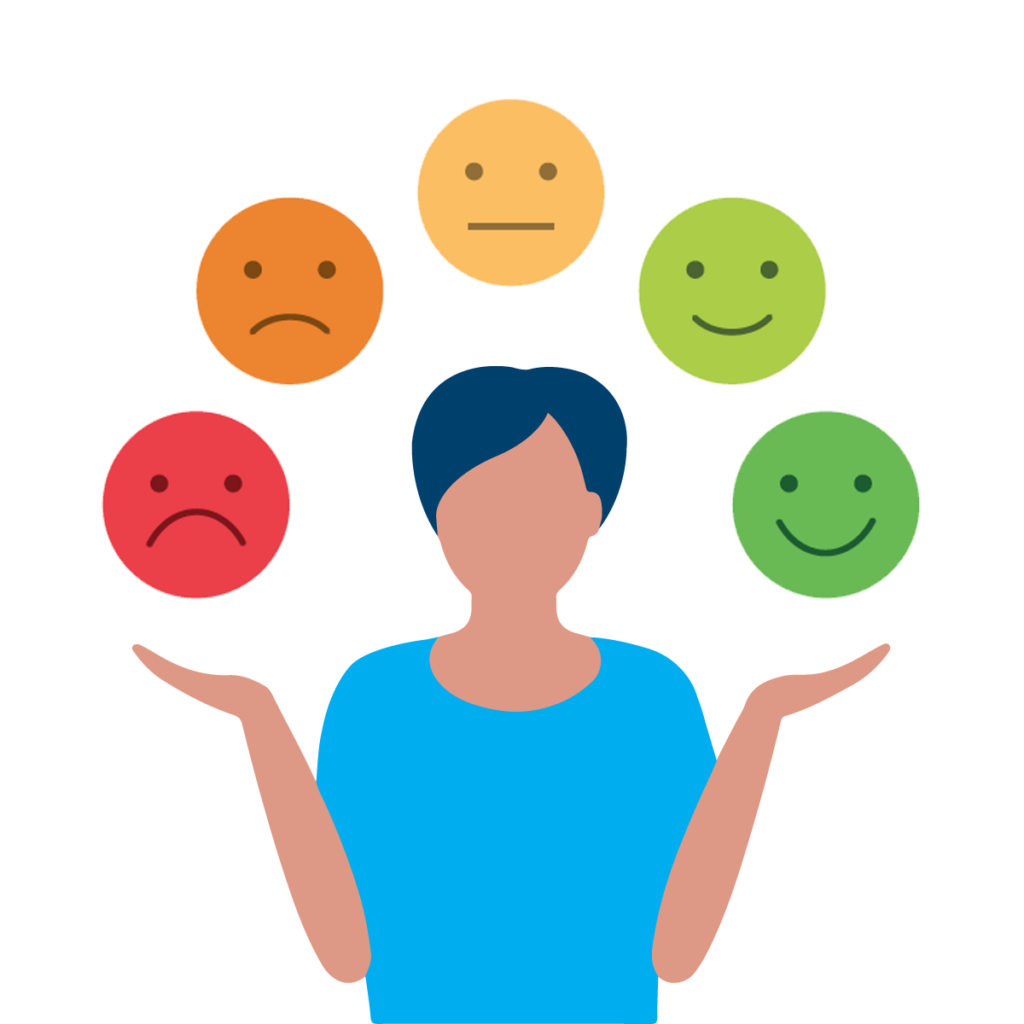
What to expect after a diagnosis
Living with lung cancer is not just about managing treatment and side effects—it’s about coping and navigating yourself through an intense time.
Everyone processes their emotions differently.
Some people may…
- dive straight into learning as much as they can about their particular lung cancer
- isolate themselves and not seek support
- go right into protection mode, assuring everyone around them that they’re okay
- start building a practical support network for day-to-day concerns, but not their emotions
- seek guidance from mental health professionals
- seek comfort and insight from their spiritual communities
Some people do all of these. There is no one way to handle the emotions that come with a diagnosis of lung cancer.
All emotions are real and they are valid.
These are your emotions and this is your journey but it can help to know you are not alone in how you are feeling and perhaps even more helpful to know there are truly positive steps you can take to deal with these feelings.

Ways to feel in control
- Learn as much as you can about your type of lung cancer.
- Ask questions, as many as you need to. The answers will help you plan.
- Consider taking a friend or relative with you to help take notes and remember what questions you had.
- Ask if the facility has a lung cancer patient navigator. This is someone who will often be your prime contact with your doctor’s office and will be able to coordinate and help with all aspects of your cancer care.
- Consider the type of support you will need and who you know that may be able to help. If you don’t know of anyone, seek patient navigation from the hospital or trusted online sources such as active chapters of the American Lung Association (ALA) and American Cancer Society (ACS) in your community.
- Make a list of things you “wish everyone could know” about what you are going through and what you need. This list will help you figure out how comfortable you are discussing your cancer and your overall needs, and can bring out the ways you may ask others to support you during this time.
- Stay active, stay engaged. See the wellness section for options and ideas.
Here are some of the most common emotions:

1. Overwhelmed
A cancer diagnosis of any kind is a lot to absorb. People need to take the time and space they need to think through issues that are physical, practical, emotional, and even financial.
Communicating about these feelings is the first step in establishing your support network and learning about programs and services that were developed to help you. Whether it’s expressing your emotions to your healthcare team, a social worker or therapist, your closest friend, or to your immediate family, it’s a step towards feeling less overwhelmed and more in control.

2. Anger
Anger is a healthy, normal reaction to a diagnosis. You may find yourself asking why this has happened to you. All questions are fair game as you sort out your feelings and next steps. It’s important to remember that no one deserves cancer. Research has been uncovering many reasons, such as environment and genetics, that play a role in why we develop cancer.
For some, the energy that comes along with anger has served as fuel for them to become more informed, ask more questions, and carve out more opportunities for wellness.
Your anger may reveal itself in ways you did not anticipate. You may become less patient with things that didn’t bother you prior to your diagnosis. Whether it’s a traffic jam or a slow customer service call, this is normal. It can be helpful to identify these moments so you can help yourself reframe thoughts or communicate to those around you if your anger is misplaced.
Admitting you are angry is not a weakness in your ability to cope. It’s what you do with the anger that affects your ability to feel support from others and help move forward.

3. Fear and worry
As you are sorting through your feelings, fear and worry may rise to the top. How will I react to treatment? How will I balance this with my job? How will I take care of my children, spouse, or my family? How will I know what to say to people?
There is great comfort in knowing the next steps. As you learn more about your treatment plan and your schedule, you will be able to make more informed choices about the support you need and what to communicate. Consider your treatment plan like a roadmap.
If you are still sitting with your diagnosis and do not have a plan yet, know there are resources to help you navigate through this period of time. There are local and online support resources that are specific to living with lung cancer such as those at LCRF.org.

4. Anxiety and depression
Your diagnosis is a lot for the mind and body to process. It’s important to recognize the signs of anxiety and/or depression so you can get the help you need. Here are a few common symptoms of each:
Anxiety
- Faster heartbeat
- Muscle aches
- Stomach discomfort
- Tightness in the throat and chest
- Not able to sleep
- Easily distracted and unable to focus
Depression
- Constant feeling of sadness
- Feeling emotionally empty or numb
- Feeling unworthy, or being a bother
- Weight changes
- Feeling helpless or hopeless about life in general
- Crying throughout each day
- Feeling the urge to harm yourself

5. Guilt
Many cancer patients express feelings of guilt regarding how their illness will impact others. Some may ask, “What have I done?” And the answer is, cancer is no one’s fault. Those same support programs and resources that may help you can also help your loved ones.

5. Loneliness
You may find yourself wanting more time alone than usual. As you tackle all of your emotions, it’s normal to feel isolated and unsure if anyone else can understand what you are going through. Many others have felt this way. You are not alone. Online support groups may help you bridge the gap between wanting to stay home and needing to connect.
Conversations with friends and family can be initially awkward as people realize they are not sure of the right thing to say. Emotions may run high and you may feel the need to protect them or help them feel better. This is not your responsibility. Once you are confident in the types of support you need, you have every right to let them know. Statements such as, “It would be very helpful to me if you focused on what I can do instead of what I cannot do.” Or, “I know you’re worried about me and I appreciate that, but I need to stay positive and these conversations are not helping me with that.”
Emotional support comes in many different flavors. For you, it may be someone you can call at any hour, for others it could be watching funny movies or attending music concerts. You can decide for yourself how your support network can best help you. By communicating that, you are letting them know how they can uniquely help you.
Express your feelings in whatever way is most comfortable. Be genuine about a bad day if you are having one. Owning how you feel can help you release it. It’s much more difficult on your body to hold the stress inside.

Navigating resources online can be overwhelming. There is a large amount of information available and not all websites are accurate or are up-to-date. Ask your healthcare team for suggested websites that they trust. Websites such as LCRF.org offer medically reviewed content and ongoing review, which is different than a single person’s patient-journey website.
The online communities can help many patients or caregivers, especially those developed by trusted sources. Sharing information with other patients can be helpful but it can also be confusing if you are not sure whether the information is correct. Always ask for resources when you can. Posting a reponse such as, “That’s interesting and I would like to learn more. Can you share with me how you found this information?” can be a helpful way to question without making the person defensive.
While information is critical, so is support. Online communities have been helping patients connect across the globe. For information on the Lung Cancer Research Foundation’s online support community, go to LCRF.org/facebookgroup.